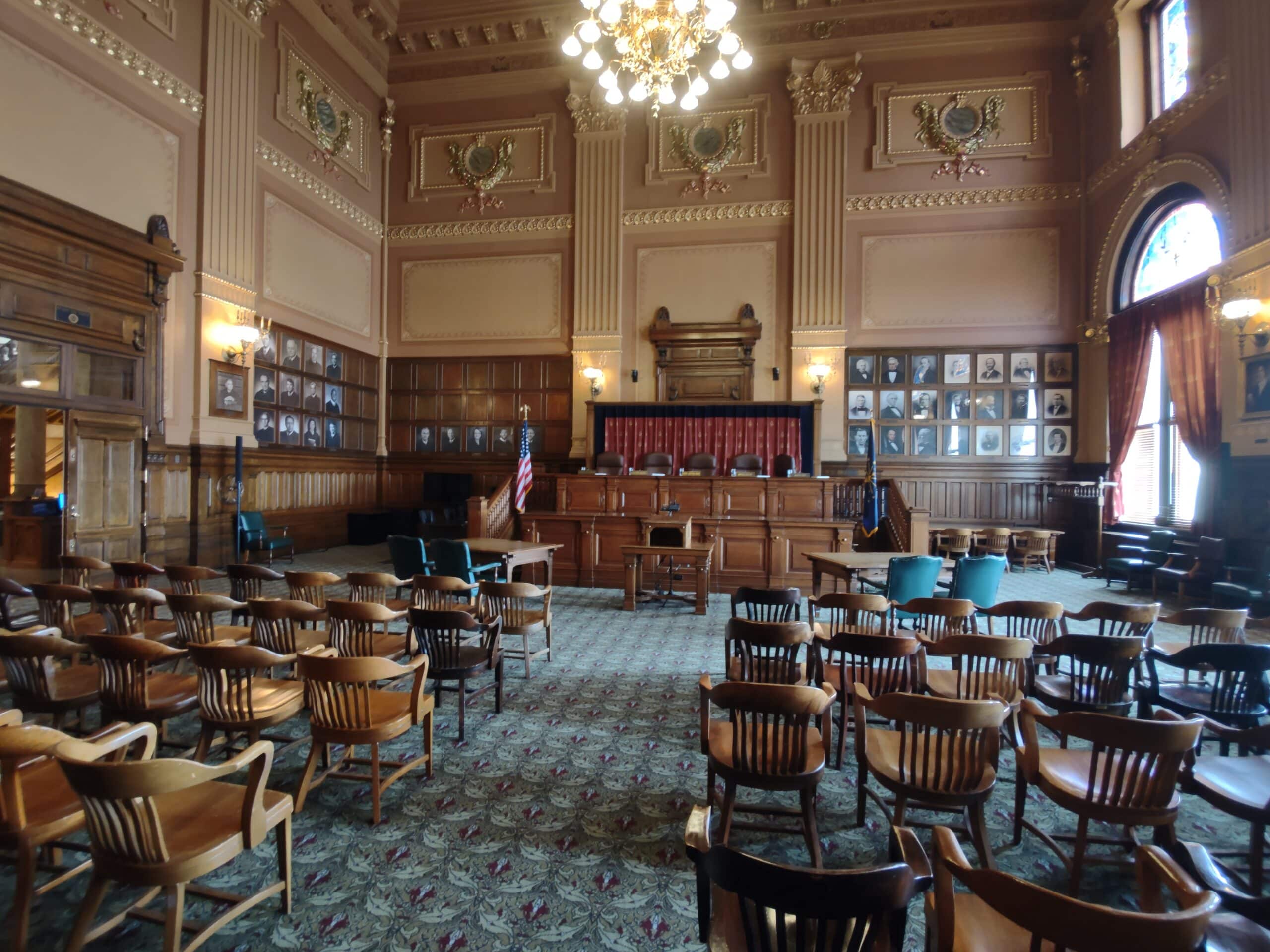
The Indiana Citizen
September 27, 2023
An Indiana Supreme Court majority agreed with the Indiana Right to Life Victory Fund that the state’s campaign finance laws do unconstitutionally limit corporate donations to super PACs but the opinion issued Monday revealed a deep division among the justices over textualism and the role of the judicial branch.
The ruling in Indiana Right to Live Victory Fund and Sarkes Tarzian, Inc. v. Diego Morales, et al., 23S-CQ-108, was in response to a question from the 7th Circuit Court of Appeals.
The question arose from the lawsuit IRTLVF, which has a super PAC, filed that challenged the state’s political contribution statutes in federal court. After the lawsuit was dismissed by the Southern Indiana District Court, the Victory Fund appealed to the 7th Circuit. In April, the federal appellate court said it could not render a decision without understanding the meaning of the state statute.
So, the 7th Circuit posed the question to the Indiana Supreme Court: Does the Indiana Election Code – in particular sections 3-9-2-3 to -6 – prohibit or limit contributions to political action committees for independent campaign-related expenditures?
Four of the five Indiana justices said the answer was yes. The majority opinion, written by Justice Derek Molter, tore apart the text of the Indiana Election Code and found that despite the statutes not even mentioning contributions to independent-expenditure PACs, commonly called super PACs, the law does limit such donations.
State election officials argued the statute’s silence on contributions to super PACs should be interpreted as allowing unlimited monetary donations to those entities in support of political causes. The Supreme Court’s majority rejected that argument.
“But the Indiana Code directs that silence is prohibition by saying that ‘[c]ontributions by a corporation or labor organization are limited to those authorized by sections 4, 5 and 6 of this chapter,’” Molter wrote, citing to the provisions in Indiana Code 3-9-2, which governs campaign contributions.
Justice Christopher Goff dissented, asserting the IRTLVF is a rare case where “too great a focus on the text” can undermine the enacting of the legislature’s intent. In this case, he said, the justices should do more than “mechanically interpret the text” and consider the historical context as well as the court’s role in Indiana government.
Goff pointed out state election officials are interpreting state law as allowing unlimited corporate contributions to independent-expenditure PACs, known as super PACs, in accordance with the U.S. Supreme Court’s decision in Citizens United. This ruling held that restrictions on independent-expenditure contributions violated the First Amendment protections on free speech.
The statutes’ silence, Goff continued, implicitly set independent-expenditure contributions beyond the scope the law. Moreover, the Indiana General Assembly has “apparently acquiesced” to that interpretation, because it has not amended the law.
“In short, our colleagues in both political branches have wisely chosen not to act in violation of constitutional law,” Goff wrote. “We, too, should be wary of imposing on the Code a meaning perhaps not contemplated by its authors and manifestly unreasonable in light of today’s law and policy.”
The case originated because Sarkes Tarzian, a radio and television operator based in Bloomington, wants to contribute $10,000 to the Victory Fund for independent expenditures.
Super PACs can only use the monetary donations to advocate for specific causes or ballot initiatives. They cannot make contributions directly to candidates.
Since Indiana law limits corporate contributions to regular PACs, which funnel the money to candidates and political parties, Sarkes Tarzian feared it would be found to have broken state campaign finance law if it made an independent-expenditure donation to the IRTLVF.
The company filed a lawsuit to prevent the state from enforcing any limits on independent expenditure contributions. James Bopp, the attorney who successfully argued the Citizens United case before the U.S. Supreme Court in 2010, is representing the IRTLVF and Sarkes Tarzian.
Oral arguments before the Indiana Supreme Court were held Sept. 7.
Reviewing the question from the 7th Circuit, the majority in the state Supreme Court found the statutes were unambiguous in that contributions to super PACs were restricted. Therefore, the court stated it could not read the text of the laws as allowing unlimited donations.
Citing to 2018 U.S. Supreme Court precedent that held courts must not rewrite statutes, Molter wrote that the judicial branch would be exceeding its authority if it read the unambiguous election code as state officials want it to be read.
“And that would run afoul of our constitutional separation-of-powers because it is the legislature that writes and revises statutes while we merely interpret and apply them,” Molter wrote.
In his dissenting opinion, Goff maintained the court did not have to upend the election code “by substituting our own rigid textualism for everybody else’s practical, commonsense understanding of the law.” He advocated that the court read the code as not limiting independent expenditures since the legislature did not amend the statutes after Citizens United.
“In giving an answer to this request, we must consider our own Court’s responsibilities,” Goff wrote. “I see our duty as broader than merely to expound the meaning of texts. We represent one of three branches of government in a state that is itself bound to a wider national union. Our rulings should, where possible, support coherence in this constitutional order.”
Dwight Adams, a freelance editor and writer based in Indianapolis, edited this article. He is a former content editor, copy editor and digital producer at The Indianapolis Star and IndyStar.com, and worked as a planner for other newspapers, including the Louisville Courier Journal.